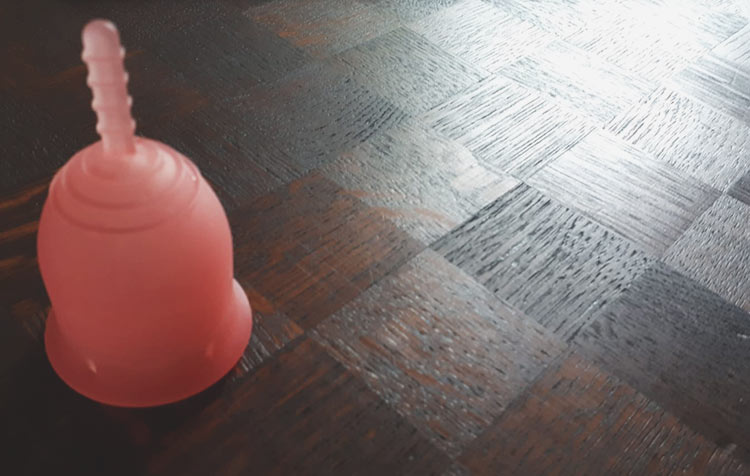What does the most plastic free monthly hygiene out? Are tampons, panty liners and the like actually available without plastic? If you want to get a grip on this waste problem with your monthly hygiene, you've come to the right place. In this article, I'll show you several options for your personal monthly hygiene without plastic and tell you which one is my favorite. There are also a few natural tips for a pleasant and pain-free period. Have fun reading!
Here is another short Table of contents about the article:
- Menstrual cups
- Cloth bandages
- Menstrual sponges
- Organic tampons
- Organic sanitary napkins
- Free menstruation
- Natural tips for a pleasant period
- Conclusion
Plastic free menstrual hygiene with menstrual cup
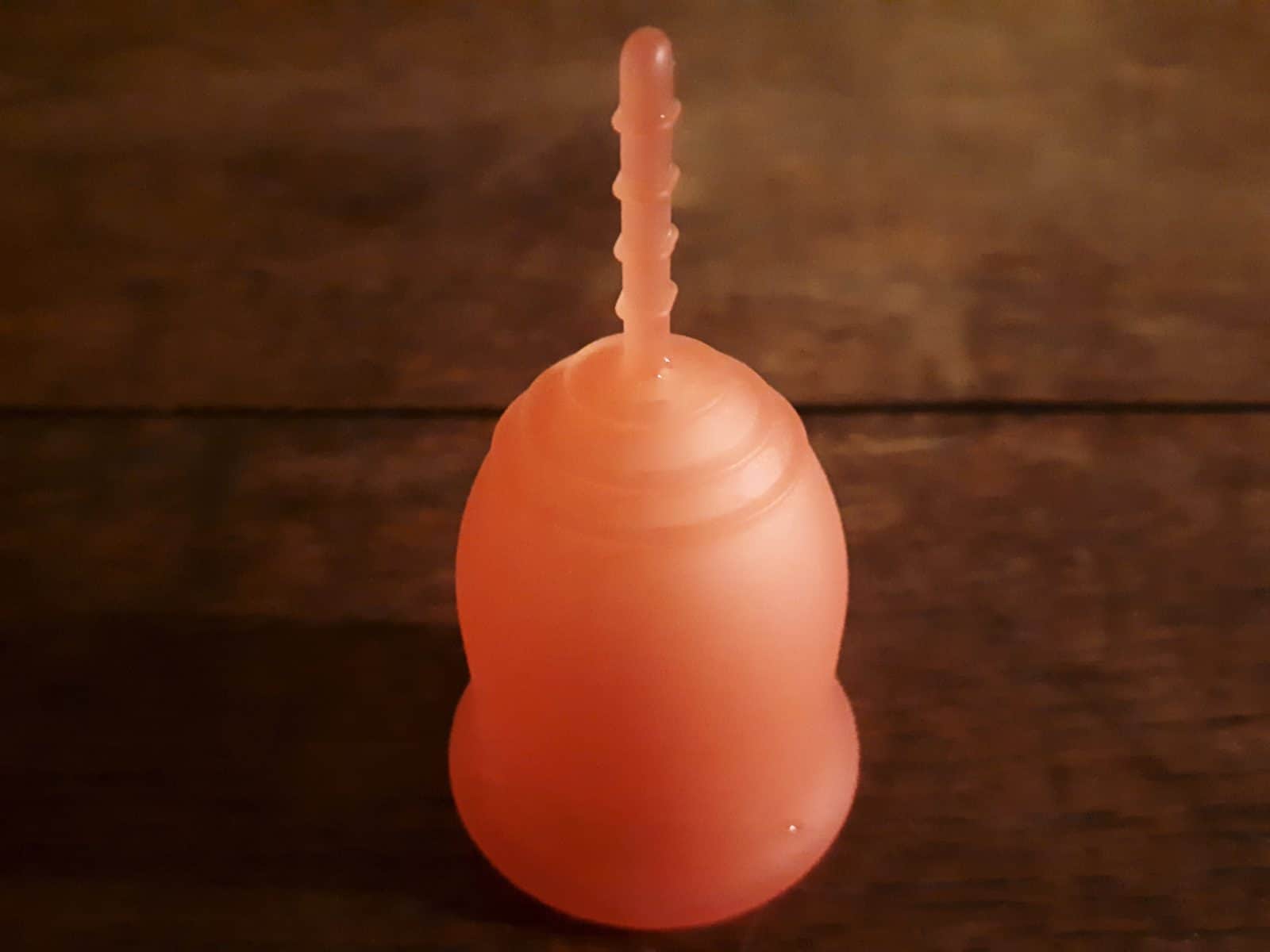
My absolute favorite for plastic-free menstrual hygiene. Although menstrual cups have been around for a long time and are becoming more and more popular with women, many gynecologists are unfortunately not yet familiar with them. But it has so many advantages! You don't feel them when you wear them, you can easily Sports with it and you can use it for up to 12 hours at a time. Moreover, it is good for your mucous membrane because it is made of medical silicone. One Menstrual cup also lasts quite a long time. Plus, you can use it for up to ten years. And hardly any other plastic-free monthly hygiene measure is so environmentally friendly.
The right menstrual cup
What's really important is that you get advice. Because not every woman fits every cup. Don't just go to the nearest drugstore and buy the first cup that comes along. The likelihood that it won't fit you is quite high when you buy blind. Unfortunately, gynecologists and brand-name manufacturers can often not be relied upon in this regard. Feel free to come to the Facebook group about plastic free monthly hygiene. There you can get information. You provide some information and then get honest advice from the community. I also got advice there and my Lena S fits me great. Most women who switch to a menstrual cup can't think of anything else afterwards. I know it can be challenging for you to talk so openly about the topic in a Facebook group. But menstruation is something that is natural and nothing to be ashamed of. After all, it affects 50% of humanity. And natural menstrual hygiene without plastic and harmful substances is fortunately a really important topic for many women.
How does the menstrual cup work?
At first sight of a menstrual cup, every woman probably thinks to herself, "How is that supposed to work?" - In the end, however, it is much simpler than you might first imagine. In the beginning, it may take a few tries. But once you get the hang of it, the menstrual cup works flawlessly as a plastic-free alternative to tampons. It took me about 2 monthly cycles to get completely used to the cup. Before inserting the cup, you fold it. There are several ways to do this. On the inside, you have to "pop" the to keep it tight. When getting the cup out, it is important that you release the vacuum first. You can do this by gently squeezing the cup. In addition, the cup must never be pulled out by the handle. This can quickly lead to injuries. If you have trouble getting the cup out the first time, squatting down and pushing it out can help. Also at this point I can tell you the Facebook group again highly recommend!
Menstrual cup fold
There are different ways to insert the menstrual cup. I will now introduce you to the different folding techniques so that you can fold your menstrual cup small in the future.
The C fold
This is probably the simplest convolution. It is simple and is considered the standard folding.
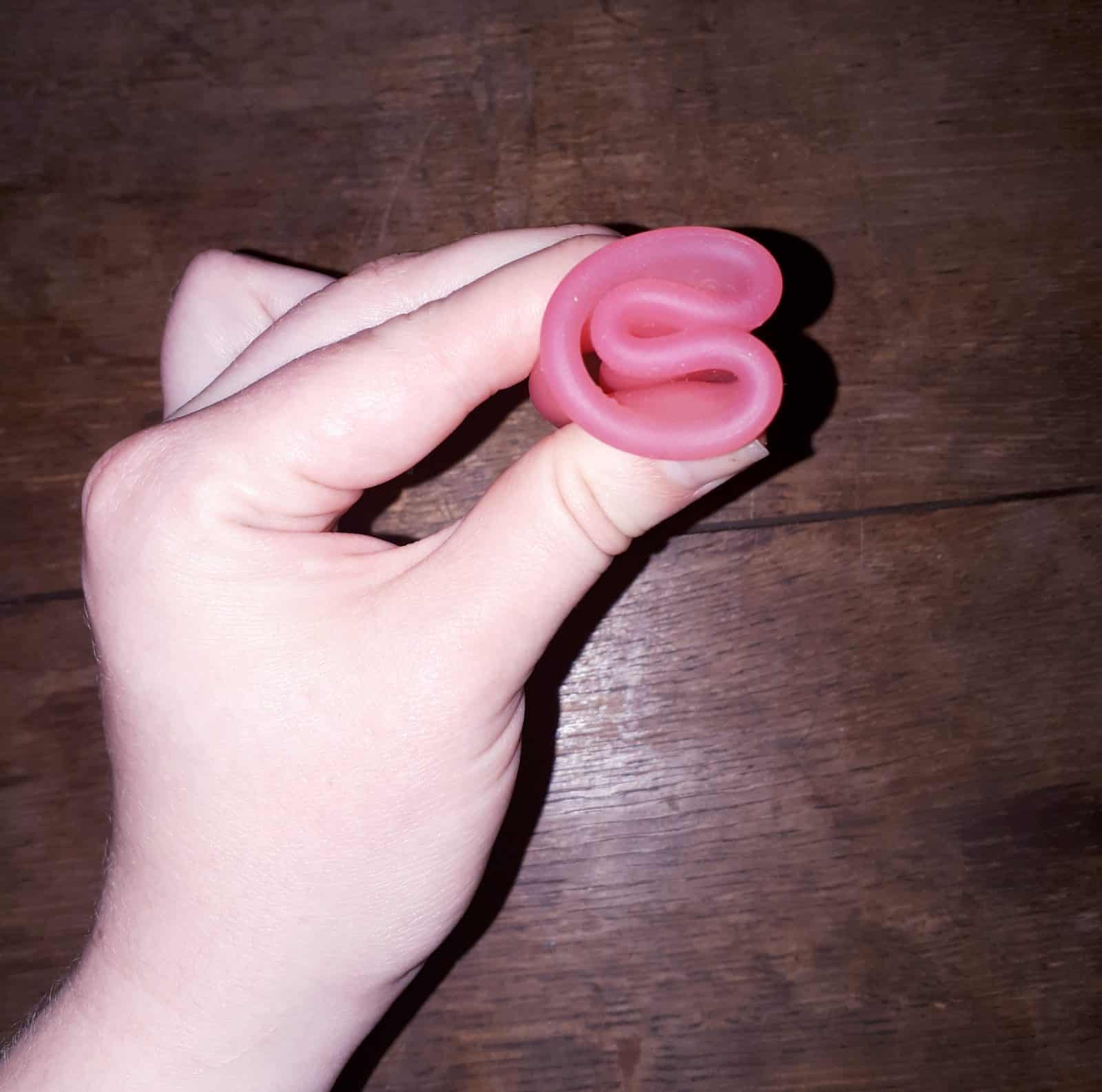
The S-fold
Suitable for all women who are rather slim built.
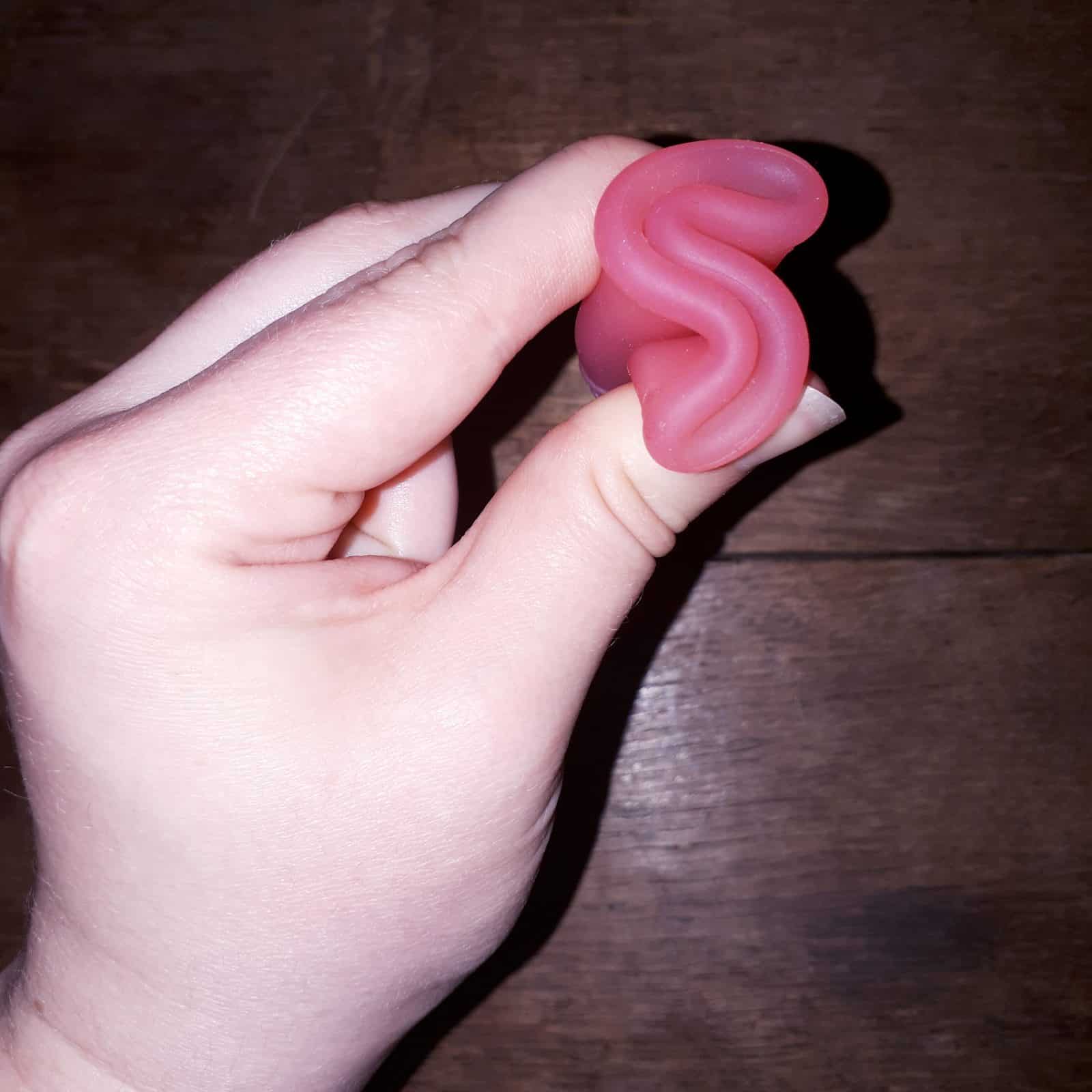
The shell folding
This convolution is a variant of the C convolution.
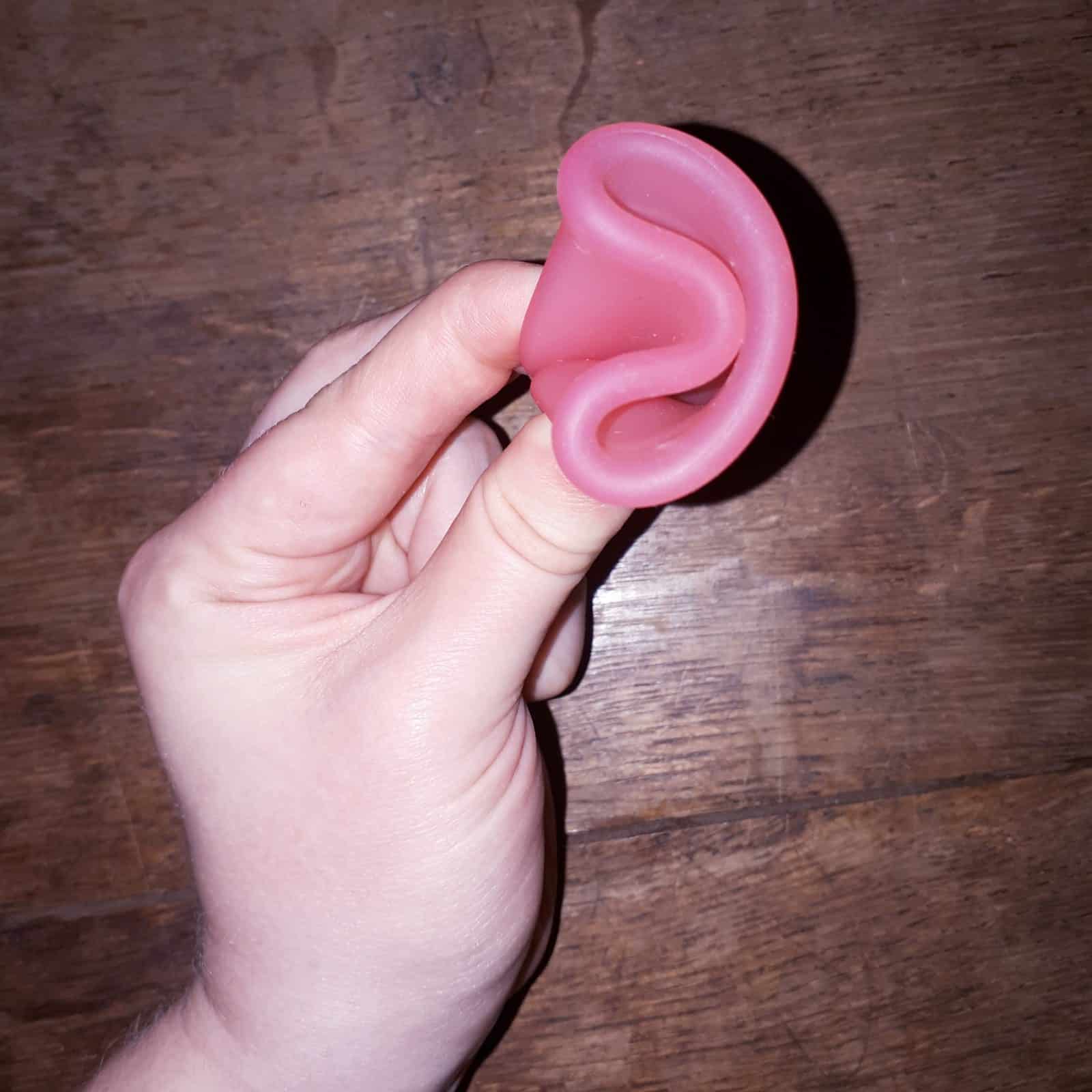
The triangle fold
This folding ensures that the cup "pops" quickly and it quickly adapts.
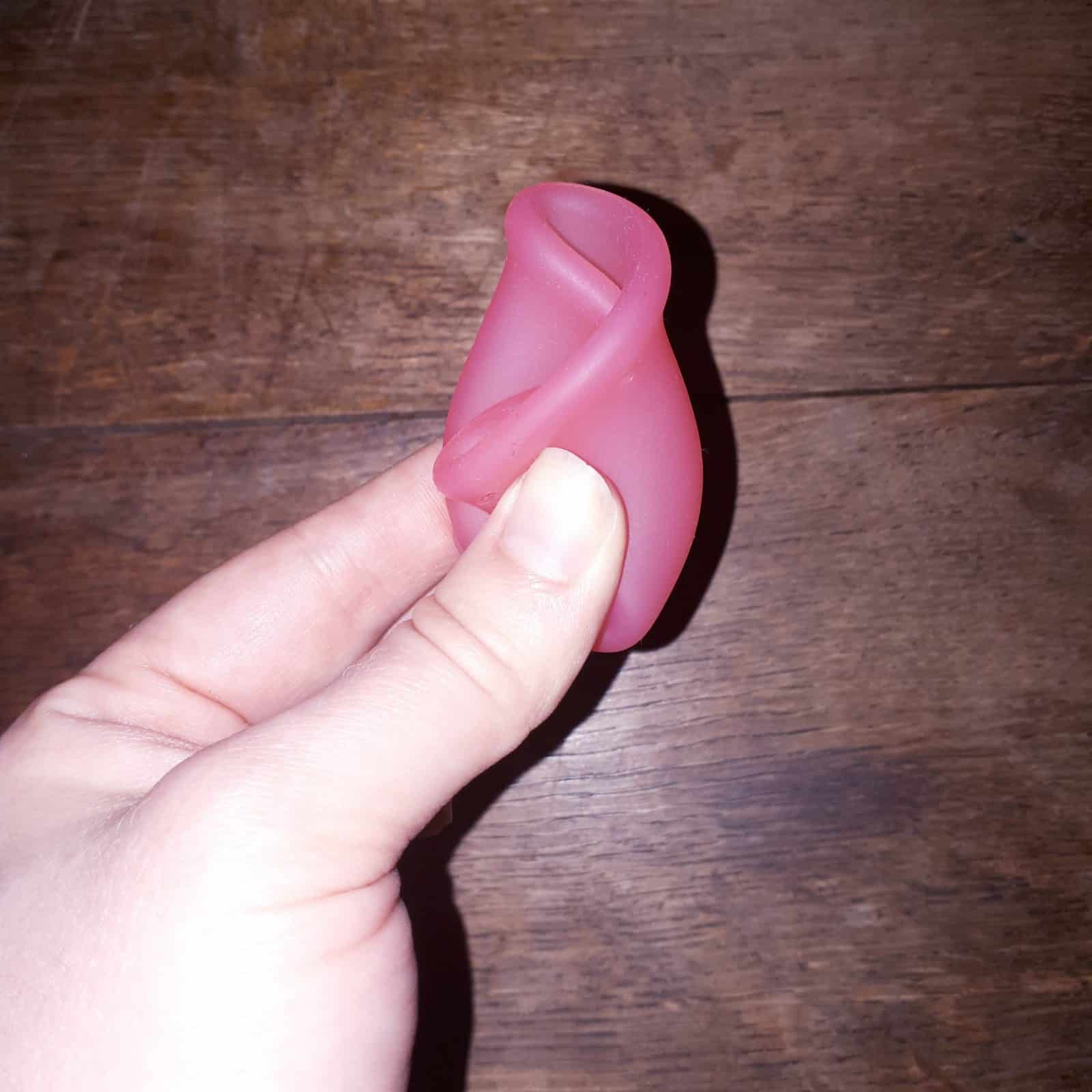
Advantages of the menstrual cup:
- Lasts up to 10 years
- Environmentally friendly
- Good for your health (mucous membrane)
- Can be worn for up to 12 hours at a time
- Super suitable for doing sports
Disadvantages of the menstrual cup:
- Some cups can not be worn while swimming
- Perhaps a bit complicated for some at the beginning
- The right menstrual cup is usually not available in retail stores
Plastic-free monthly hygiene with cloth sanitary napkins
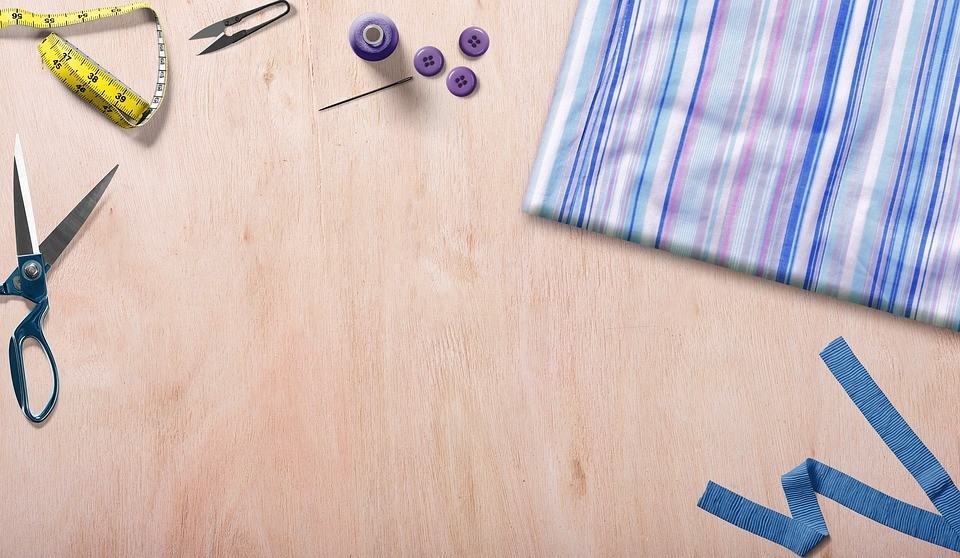
Normal pads from the drugstore are made with the help of formaldehyde and chemical softeners. Formaldehyde is toxic and can be harmful to health.₁ That's why we're going in search of a good, plastic-free alternative for menstrual hygiene. If the menstrual cup is personally out of the question for your plastic-free monthly hygiene, but you're still looking for a reusable method of monthly hygiene without plastic, this one might be right for you. The cloth pads as plastic free panty liner you can easily wash in the washing machine, having previously placed them in cold water. You can get them here* or even make it yourself.
Advantages of cloth bandages:
- Reusable and therefore good for the environment
- Pollutant-free
- Washing machine solid
Disadvantages of Stobff bandages:
- Must be washed before the next use
- Can not be worn for swimming
Plastic free menstrual sponge
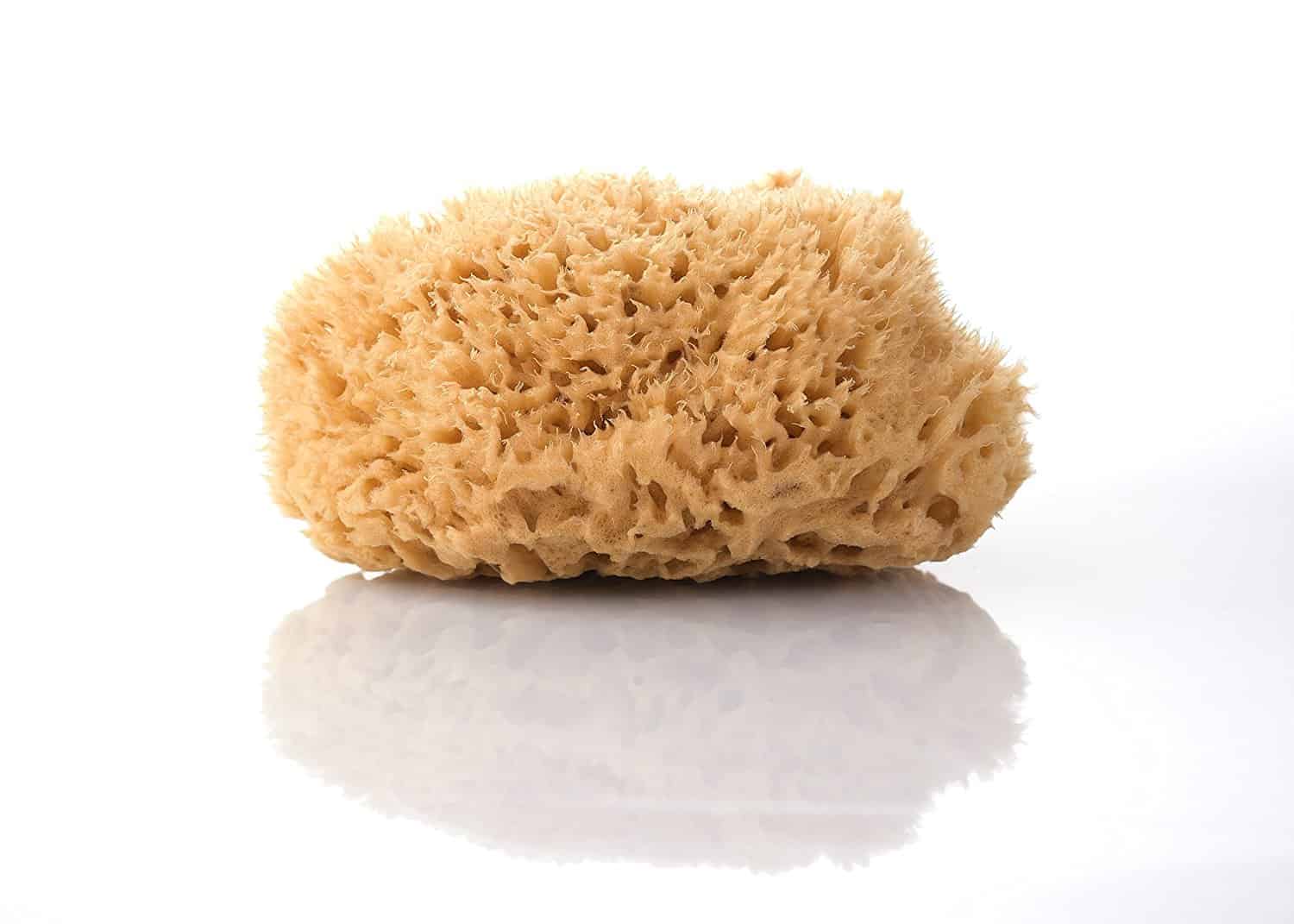
The classic Natural sponge is the oldest plastic-free variant of monthly hygiene. It has been used for a long time. The so-called menstrual sponge consists of natural material and can be regularly reused be used. Just like a tampon, you should change it after eight hours at the latest. You can clean natural sponge with hot water. In the evening you should keep it in a mixture of vinegar and water (1:2) to wash it out in the morning. It should never be boiled or washed with harsh detergents, as this will render it useless. Important: The sponge can only be inserted while it is slightly moistened, after which it can be removed without any problems. If you still have concerns, you can simply sew a cotton thread to it. Here you can get the natural sponge*.
Advantages of the natural sponge:
- Multiple usable
- Completely natural material
Disadvantages of the natural sponge:
- Removing them might be a bit complicated for you in the beginning.
Cotton tampons for plastic-free monthly hygiene
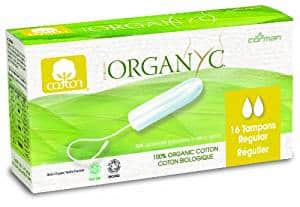
If you don't want to use a menstrual cup, cloth pads or menstrual sponges, organic cotton tampons are also suitable for your plastic-free monthly hygiene. The manufacturer of the organic tampons pays attention to a "green" packaging. The packaging of the individual tampons is made of paper and the carton is made of recycled paper. The complete product and the packaging are compostable. here you can get the cotton biotampons*.
Advantages:
- Free from substances of concern
- Recycled packaging
- Good for doing sports and swimming
Disadvantages:
- Not reusable
- Shorter change time than conventional tampons
Cotton sanitary napkins for menstrual hygiene
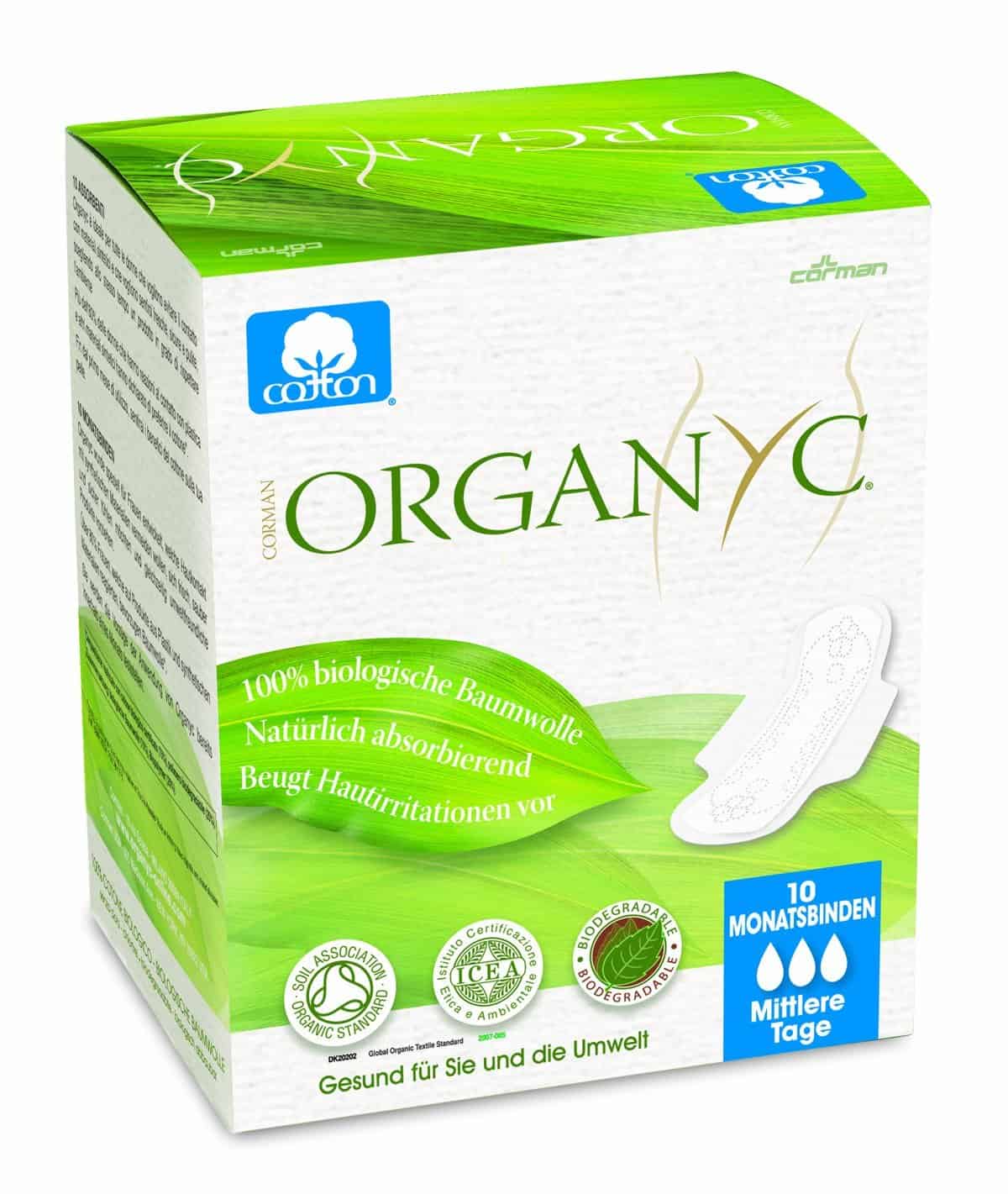
Just like organic tampons, there are also sustainable organic pads made of cotton. They are ideal for a monthly hygiene without plastic, because they are completely biodegradable. Conventional pads, just like tampons, contain harmful substances that can damage the mucous membrane of your genitals. Even if sanitary pads are not inserted, the constant contact with them can have a negative impact on your Health have. However, thanks to organic sanitary pads there is a good and very similar alternative to the conventional ones.
Advantages:
- Free from substances of concern
- Uncomplicated
Disadvantages:
- Not reusable
- Not the best way to do sports
- Can not be worn while swimming
Free menstruation
There is another option for plastic-free monthly hygiene - have you heard of free menstruation? Free menstruation means learning to control and notice the bleeding yourself. What sounds impossible at first is quite doable. When you notice that the next bleeding is approaching, you can consciously stop it for a while. You do this by using your muscles. As soon as it is convenient for you, you can go to the toilet. This ensures that you can theoretically do without all protection during your period. However, many users still use a protective measure for double security. More info and tips on this plastic-free monthly hygiene variant can be found in the Facebook Group Free Menstruation.
Advantages:
- You get to know your own body better as a woman
- You can theoretically do without monthly hygiene items
Disadvantages:
- It takes quite some time to master Free Menstruation.
Natural tips for a pleasant period
Over time, I have also made some valuable experiences with plastic-free monthly hygiene - the best tips I would also like to give you on the way.
Use a period calendar app
The topic of menstruation has now also arrived in the digital space. You can use the "Menstruation Calendar & Cycle Calendar" app to gain insights into your periods. You can enter your period times and calculate in how many days your period will start. It also informs you about your most fertile days and ovulation. The app also offers you the possibility to keep a diary about your cycle. For example, you can note down symptoms and feelings.
Tea against abdominal pain
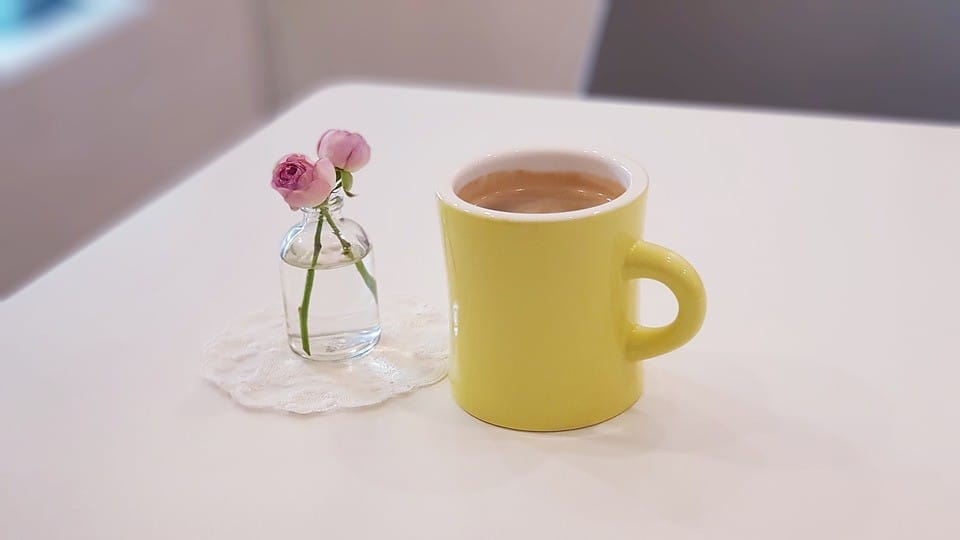
Many women underestimate the effect of medicinal herbs. For thousands of years, medicinal herbs have been used to help women with period pain. Helpful herbs include lady's mantle, yarrow, mugwort, marjoram, oregano, chamomile flowers and lemon balm. The best way to take these is as a tea.
Do sports and drink plenty of water
Sure, some don't feel well enough to exercise much during their period. However, sports and any form of exercise can really work wonders. Sports promote blood circulation and help shed the lining of the uterus. Also drink a lot of water is conducive to your well-being.
Eat healthy
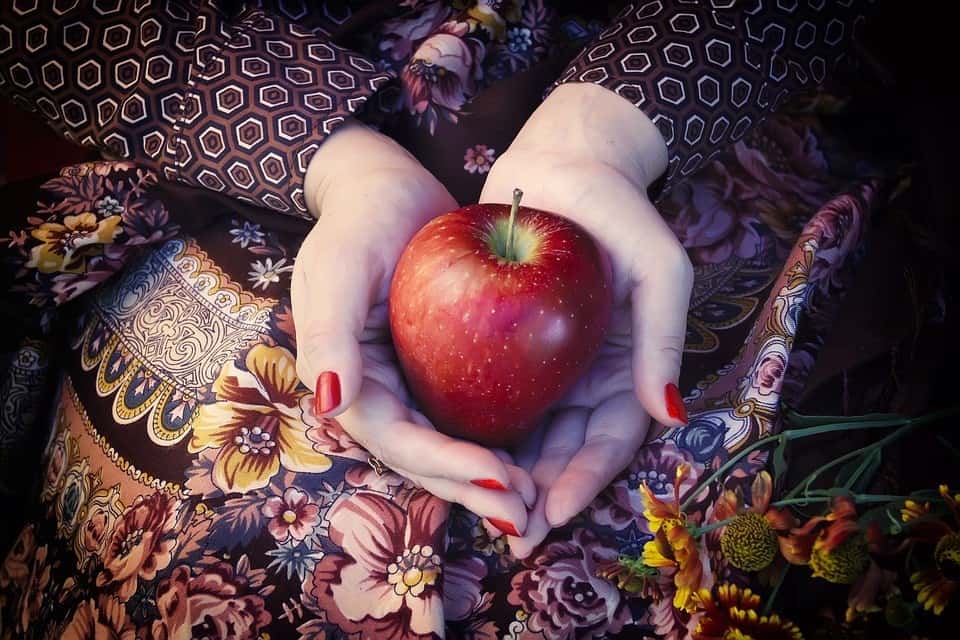
Menstrual cramps can be significantly worsened by an incorrect or inadequate diet. Especially greasy food should be avoided, especially in the days before the onset of menstruation. It is also important for you as a woman to pay attention to your magnesium levels. Too little magnesium can also cause pain. During your period, you should also avoid too much salt, alcohol and sweets, if possible.
Ginger instead of painkillers
Do you tend to take painkillers during your period? If you suffer from period pain, you can try fresh ginger instead. Ginger provides relaxation and relieves cramps. You can add fresh ginger to any tea. This way you can do without painkillers in the future. (Article recommendation: Propagate ginger and other foods)
Warmth and relaxation
No woman actually needs to be reminded of these tips 😉 Heat in the form of a hot water bottle, heating pad or a hot shower can work wonders. The addition of St. John's wort oil or rose oil further enhances the effect of baths.
The monthly hygiene without plastic
I hope I could make you understand the importance of natural and plastic-free menstrual hygiene. Menstruation is an important part of every woman's life that should not be considered a taboo subject. As you can see, there are several ways to make your monthly hygiene plastic-free. My personal favorite for plastic-free monthly hygiene is and remains the menstrual cup.
What's your take on plastic-free feminine hygiene? What protection do you use? Just dare to break the silence about the "taboo topic" and leave me a comment. Also feel free to ask questions in the comments.
Kind regards,

PS: You can get more tips on how to avoid waste in the article Zero Waste Lifestyle.
References:
₁ http://www.bfr.bund.de/de/presseinformation/2006/14/krebserregende_wirkung_von_eingeatmetem_formaldehyd_hinreichend_belegt-7858.html

